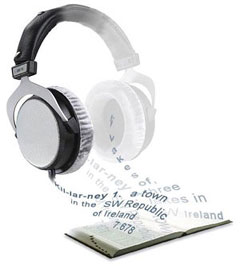Famously, the Kindle 2 debuted with Text to Speech enabled, only to see it yanked for many books after the publishing companies complained it violated audiobook copyrights. This debate is becoming an issue all over again because of devices like Intel’s Reader for the blind, which uses a scanner and text to speech to allow a visually impaired individual to “read” a written passage.
Essentially, the government is pushing for a copyright exemption for these types of devices that would allow a set fee to cover copyrights, instead of a per-property basis. With some devices, like the Kindle 2, the per-book licensing makes some degree of sense, since Amazon is selling the content and can negotiate for the rights. On the other hand, something like the Intel Reader would be in real trouble, since the whole concept is to be able to scan a book or passage that you physically have in front of you. It would be nearly impossible for Intel to negotiate for the text to speech rights for the entirety of the written word.
The publishers are concerned about “slippery slopes” that lead to them losing control of their copyrights. At the same time, they need to realize that technology moves forward, and with that comes new and innovative ways to consume media. They should be thrilled by devices that let someone who is visually impaired “read”; devices that could do that with accuracy were science fiction years ago. Instead, they get caught up in the mechanics, unable to see past their business models of years past to new opportunities.
I’m thrilled the government is using their influence to push a new perspective on this, especially since it can lead to more accessible technology in the future. What are your thoughts? Should the government be stepping in here, or should device makers restrict access to per-book rights? Share below!


If devices or software that can convert text to speech are an infringement of copyright law, then parents are violating the law when reading bedtime stories to their children. It’s just another form of converting text to speech. If I buy a book, I should be able to consume it however I choose. This sounds like someone looking for a way to protect a revenue stream from technology’s inevitable advance.
“If devices or software that can convert text to speech are an infringement of copyright law, then parents are violating the law when reading bedtime stories to their children. ”
lol!!!!!!!
I don’t understand why the publisher isn’t satisfied with the fact that they sold the book. They made their profit then. How the consumer chooses to experience the book using technology shouldn’t be their concern.
Here’s where their argument falls apart, in my opinion. An audiobook is a performance, which should be protected by copyright, but text-to-speech is NOT a performance. It’s just a way to use technology to read a book…which is just like using technology to view a book.